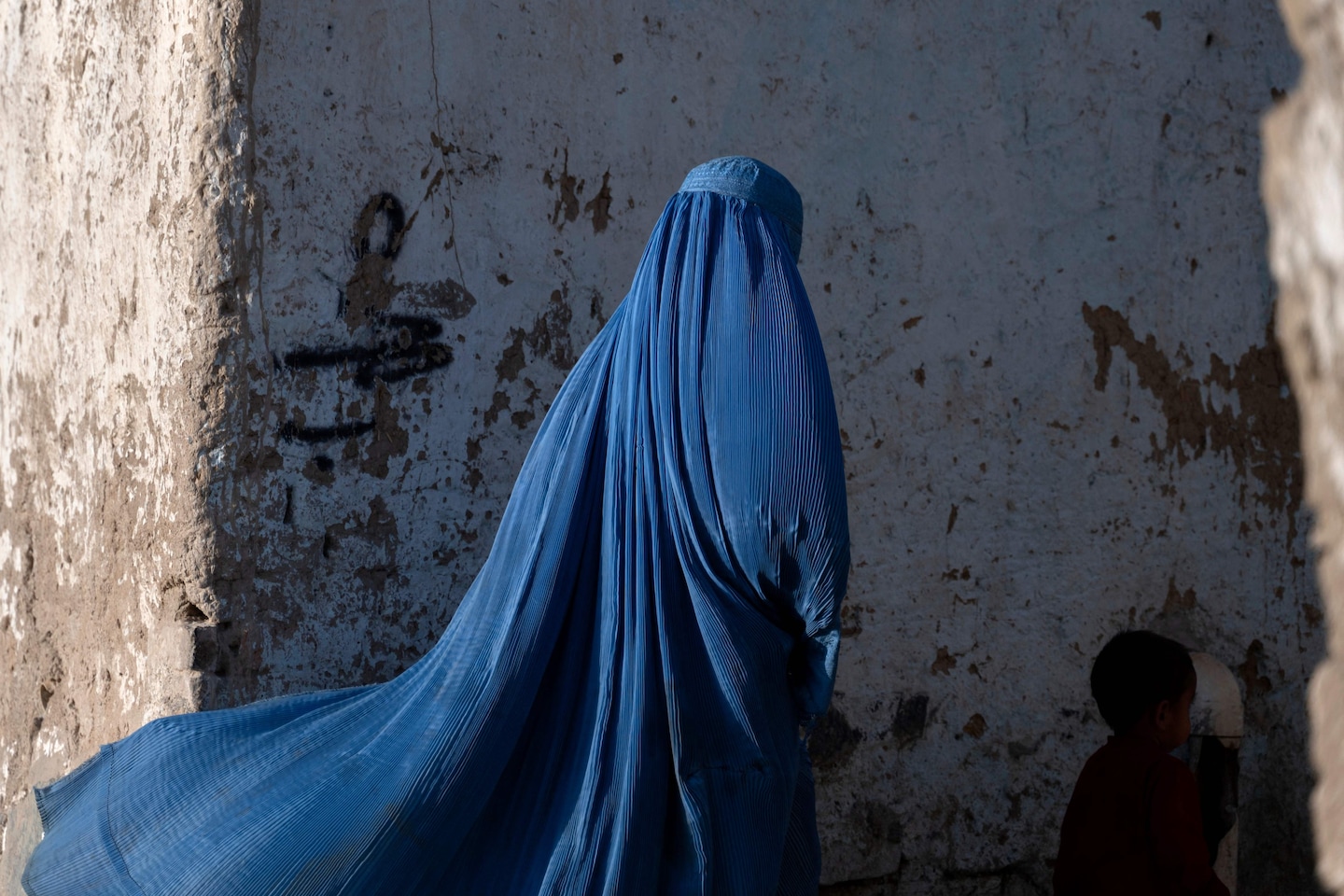Have you seen the faces of the women of Kabul? Have you seen them, these women who are my Afghan sisters, carrying signs through the streets, their voices raised for justice, their bodies vulnerable and unafraid?
In the Taliban’s Afghanistan, control of women begins at home

The Taliban decreed May 7 that Afghan women must cover themselves from head to toe in public. The blue burqa is the Taliban’s garment of choice; ideal, however, would be for women to never leave the house unless absolutely necessary.
In the Taliban’s Afghanistan, women’s bodies, opportunities and futures are to be utterly controlled by men, and in the Taliban’s Afghanistan, this control must begin at home. It’s the last part of that sentence I hope you’ll pay attention to.
During their first regime in the 1990s, the Taliban beat women in the street if their clothing was improperly “modest.” This won’t happen during their second regime — not because they’ve changed their goals, but because they’ve become more subtle about achieving them.
Now, they say, women aren’t the ones who’ll be disciplined; it will be their “guardians.” An Afghan woman’s guardians, in the Taliban’s Afghanistan, are the men of her house: fathers, brothers, husbands, even sons. If these male relatives permit a woman under their supervision to appear in public uncovered, they’ll receive a visit at home from the Taliban, and a warning. Those who fail to heed the warning, and who permit their wives and mothers and daughters to defy the Taliban’s edict, will face jail time and the loss of their jobs.
The Taliban are using their power to institutionalize control of women at the family level. The message they’re sending Afghan men is a simple one: Control your women, or we will punish you.
This is the Taliban’s strategy to create their new Afghanistan. It’s a generational strategy. And what I’m afraid of is that it could work.
What happens to a society when its boys are brought up to understand that it is normal to control the women in their lives? What happens to a society when those boys become men? What happens to the progress that this society’s women have made? And what happens to those women, forced to shelter under head-to-toe fabric like so many featureless ghosts?
As the head of a nongovernmental organization, there are boundaries of language that I will not cross, but I will ask this: How is it permissible, in 2022, for an unelected ruling body to codify control of women’s autonomy and then place that control into the hands of men?
The global community responded to the Taliban’s edict with the usual words of concern. I suppose that’s something. I understand there’s only so much they can do to alter the policy trajectory of a regime that seems to be doing everything in its power to prevent itself from attaining international legitimacy.
I understand this, too: To be female in Afghanistan today is to feel suffocated. If I succeed at conveying anything with my words, I hope it’s this. The sense of suffocation. The sense of peril in the face of the incoming tide.
And yet: I’ve mentioned, in the past, that my Afghan girls’ school is in the midst of admitting new students at our Rwanda campus. We simply have no way of bringing girls to us from within Afghanistan, but very recently, I heard from an Afghan father.
He wanted to know if there was any chance at all that we’d admit his daughters, because if such a chance existed, he was prepared to find his way to a neighboring country so that his girls would be freely able to travel — and enroll.
This man, this Afghan father, is ready to become a refugee from his homeland so that his girls can have a chance at another life.
He will not wield control, and he will not be controlled. And there is hope in that.






